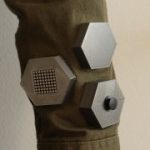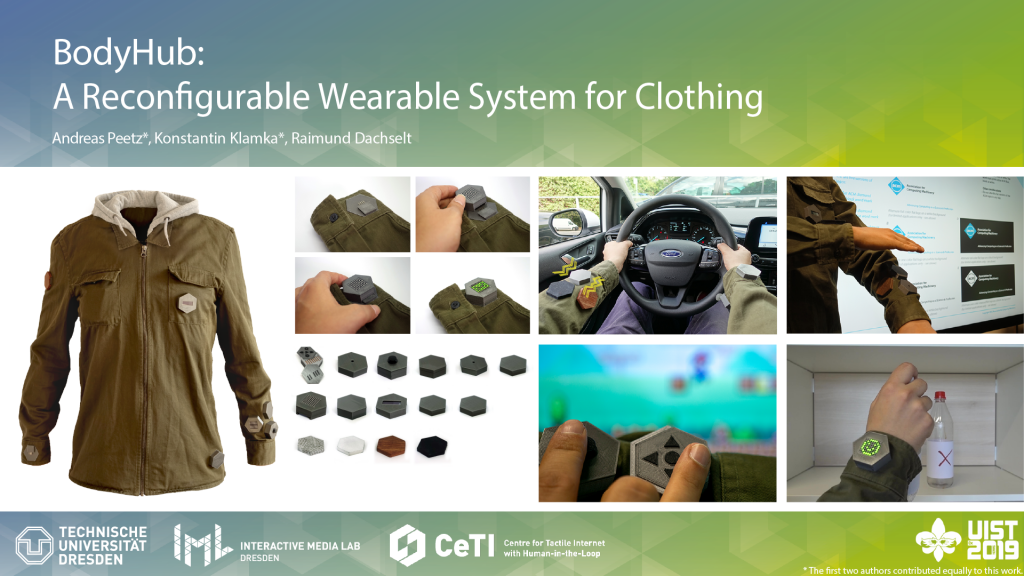
Abstract
While mobile technologies are moving closer to our body and novel wearable gadgets and smart textile interfaces emerge, current approaches are often expensive individual solutions for specific applications and lack reconfiguration possibilities. With this work, we introduce BodyHub, a modular wearable approach that allows users to realize their own smart garment applications by arranging and configuring exchangeable functional modules. To address individual user requirements and preferences, we developed a comprehensive repertoire of input and output modules that can be placed freely onto slide-in sockets which are imprinted in the textile by using 3D printing. Further, we developed a smartphone companion app that facilitates the creation of user-defined system functions without any programming skills. BodyHub thereby allows the creation of personalized wearable solutions by the users themselves and also supports ad-hoc assemblies for interface design explorations in research labs. To demonstrate the range of possible applications, we describe real-world use-cases from the areas of work life, shopping, mobility, and gaming.
Publication
@inproceedings{peetz2019_bodyhub,
author = {Andreas Peetz and Konstantin Klamka and Raimund Dachselt},
title = {BodyHub: A Reconfigurable Wearable System for Clothing},
booktitle = {The 32nd Annual ACM Symposium on User Interface Software and Technology Adjunct Proceedings},
year = {2019},
month = {10},
isbn = {978-1-4503-6817-9/19/10},
location = {New Orleans, Louisiana, USA},
numpages = {3},
doi = {10.1145/3332167.3357108},
url = {https://doi.org/10.1145/3332167.3357108},
publisher = {ACM},
address = {New York, NY, USA},
keywords = {Wearable, E-Textiles, Smart Fabric, Rapid Prototyping, 3D Printing, Wearable Construction Kits, Modular System}
}
Preview Video
BodyHub System
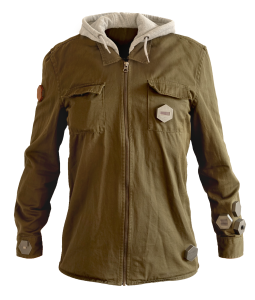
Overview:
- Modular wearable approach
- Integrated 3D-printed sockets system
- Easy & fast setup of various I/O-modules
- Simple system configuration via smartphone
- Enable a promising set of new applications
Modules
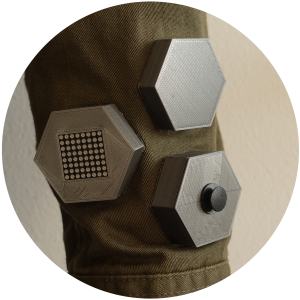
Various Modules:
-
- Output Modules: OLED-Display-, RGB-LED-Ring-, Vibration-, and LED-Matrix-Module
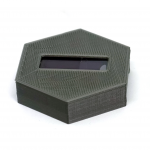
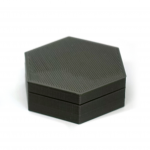
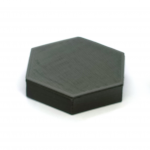
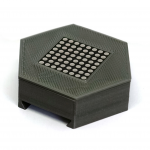
-
- Input Modules: NFC-, Orientation-, Distance-Sensor-, Gesture-Recognition-, Joystick-, Capacitive-Touch-, and Accelerometer-Module
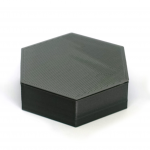
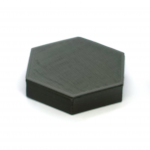
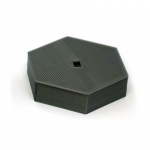
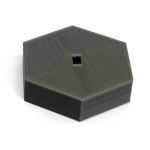
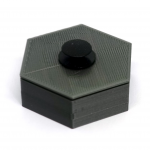
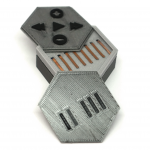

- Decorative: Tiles with paper print, wood, fabric and metal finishes
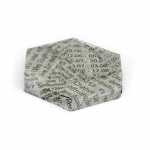
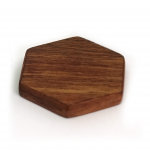
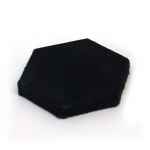
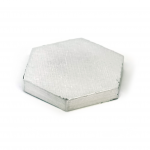
Reversible Connectors
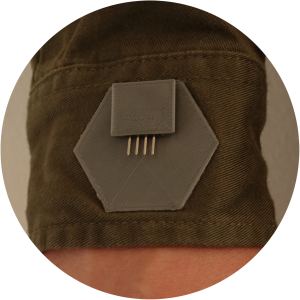
Simple plug & play system:
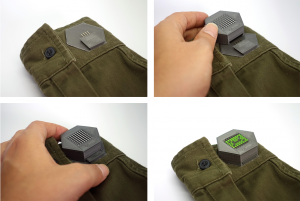
Central Communication Unit
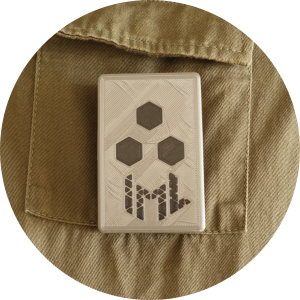
Overview Communication:
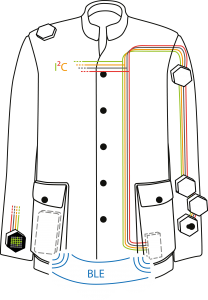
Companion App
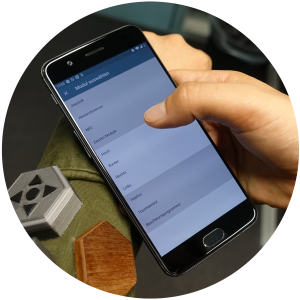
If This Then That Approach
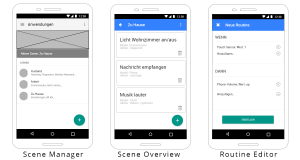
Application Examples


Demos and Awards
Besides the publication at the UIST 2019 in New Orleans, BodyHub was also exhibited on the CeTI truck as part of the CeTI Excellence Cluster and received the dresden|exists expert award for the most creative and innovative project at the OUTPUT.DD 2019.
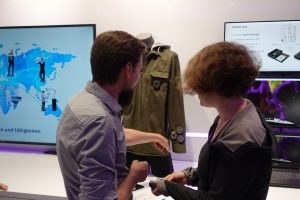
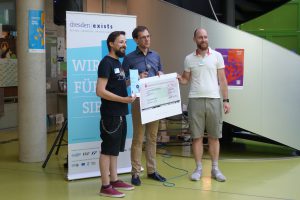
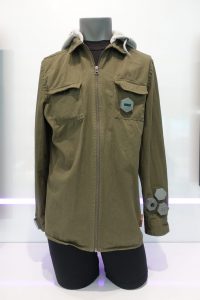
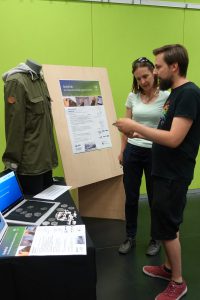
Related Student Theses

Design-Exploration und Entwicklung eines konfigurierbaren Wearable-Konzeptes für Bekleidung
Andreas Peetz 28. Mai 2018 bis 9. Februar 2019
Betreuung: Konstantin Klamka, Raimund Dachselt
Acknowledgments
Funded by the German Research Foundation (DFG, Deutsche Forschungsgemeinschaft) as part of Germany’s Excellence Strategy – EXC 2050/1 – Project ID 390696704 – Cluster of Excellence “Centre for Tactile Internet with Human-in-the-Loop” (CeTI) of Technische Universität Dresden and DFG grant 389792660 as part of TRR 248 (see https://perspicuous-computing.science).

